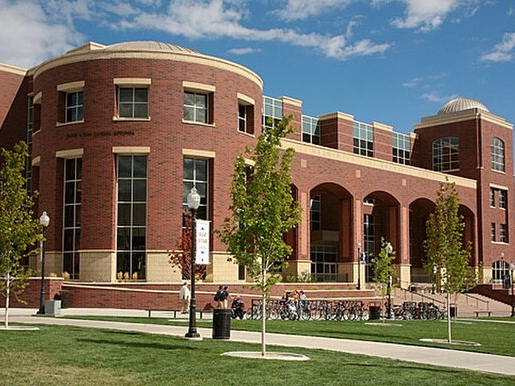Young Doctors Take Stand for Free-Market Medicine
You know how it seems like the government keeps getting bigger and more involved in our daily lives? Well, there’s an interesting story coming out of Nevada where medical students are getting active in healthcare policy – and it’s raising some important questions about who should control medicine in our state.
At the University of Nevada, Reno School of Medicine, students like Robby Boparai and Douglas Collins are working through the Nevada State Medical Association (NSMA) to shape healthcare laws. They’re heading up a student section that’s been gaining steam over the past few years.
Why This Matters for Limited Government Folks
Here’s the thing that should concern conservatives: these students are lobbying for more government funding and programs. Earlier this year, Collins went to the Nevada Legislature to push for something called Graduate Medical Education (GME) funding – basically asking taxpayers to pay more for training doctors. Governor Joe Lombardo signed it into law.
Boparai told Nevada News:
“Nevada is a really small state with a part-time legislature, so it’s really important for physicians to be motivated and involved. If physicians aren’t the ones focusing on legislation that’s relevant to health care, who’s going to do it?”
That’s a fair question, but here’s another one: should doctors be asking for more government money, or should we be looking at free-market solutions instead?
The Other Side of the Story
Now, these students would argue they’re trying to fix Nevada’s doctor shortage and improve healthcare access.
Collins says:
“We need to be a part of shaping the future of what health care looks like here, and some of the responsibilities as a medical student is to take care of the local community.”
That sounds nice, but every time we expand government funding for medical programs, we’re moving further away from the patient-doctor relationship that used to work just fine without bureaucrats in the middle.
The Big Government Healthcare Creep
What we’re seeing here is part of a bigger trend. Young medical professionals are being trained to think that government solutions are the answer to healthcare problems. Instead of learning about how competition and free markets can lower costs and improve quality, they’re being taught to lobby for more taxpayer funding.
Think about it this way: when you need your car fixed, you don’t ask the government to pay for mechanic training programs. The free market handles that just fine. Why should medicine be different?
What Conservatives Can Do
If you’re concerned about this trend toward bigger government in healthcare, here are some things to consider.
First, pay attention to what’s happening at our state legislature. These medical organizations have real influence, and they’re using it to push for more government spending.
Second, support candidates who understand that free-market healthcare solutions work better than government programs.
Third, when you hear about “doctor shortages,” ask whether the solution is really more government funding or whether we need to remove government barriers that keep qualified people from practicing medicine.
Looking Ahead
The push for government-funded medical education is just the beginning. Once we accept that taxpayers should pay for doctor training, what’s next? Government deciding where doctors can practice? How much they can charge? What treatments they can offer?
We’ve seen this movie before with other industries. Government gets its foot in the door with funding, then comes regulation, then comes control. Healthcare is too important to let that happen.
These medical students mean well, and we need good doctors in Nevada. But we also need to remember that the best healthcare system is one where doctors and patients make decisions together, without government interference. That’s the system that made American medicine the envy of the world, and that’s the system we should be working to preserve.
The fact that medical students are organizing to lobby for more government involvement should be a wake-up call. If we want to keep healthcare decisions between patients and doctors, we need to speak up now before it’s too late.
The opinions expressed by contributors are their own and do not necessarily represent the views of Nevada News & Views. This article was written with the assistance of AI. Please verify information and consult additional sources as needed.



